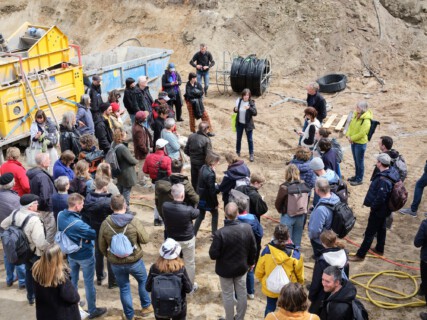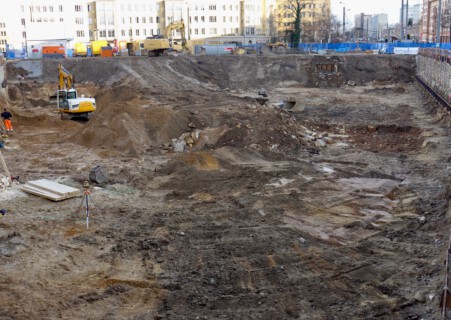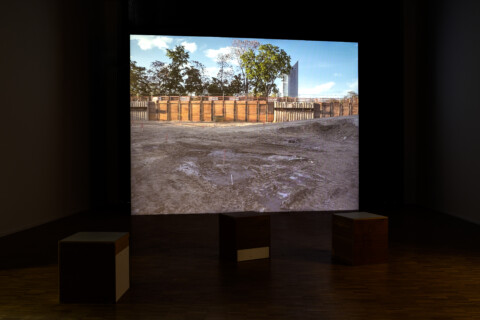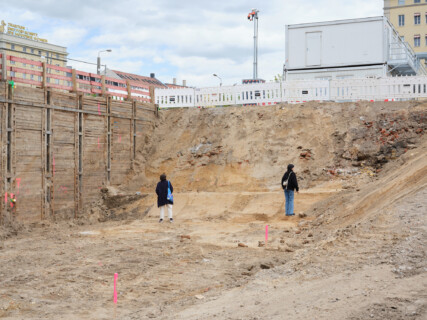What traces of geological, political and social change can be found beneath the city? In 2024, the GfZK has realised a site-specific collaboration with the artist Lara Almarcegui, based in Rotterdam. Since the mid-1990s, a time of construction boom and extensive urban renewal in Europe, Almarcegui has engaged with processes of urban transformation. She is particularly interested in conditions that are not usually the focus of attention, such as wastelands.
In Leipzig, Almarcegui explored a building site. For one day, she halted construction work at the location where a new building for the Leibniz-Institut für Länderkunde (Leibniz Institute for Regional Geography, IfL) is currently being built. Construction work was stopped at the point when the deepest layers of the excavation had been reached. Almarcegui invited the public to join her in the excavation pit to view the uncovered material and historical layers of the city before they were concealed again. At Wilhelm-Leuschner-Platz, a site of transformation, the work deals with the urban change brought about by construction. For the presentation of the project at the GfZK, Almarcegui has created a video installation.













